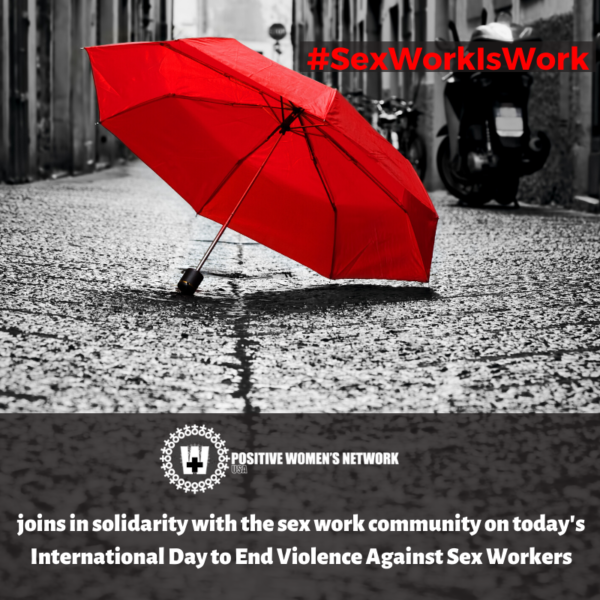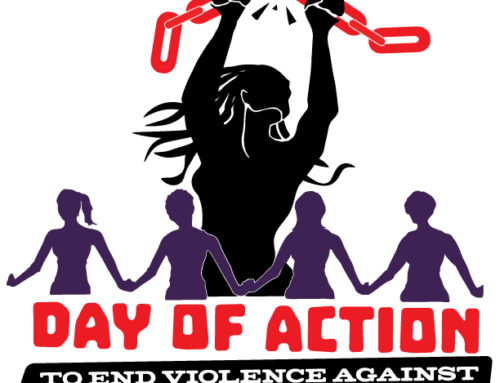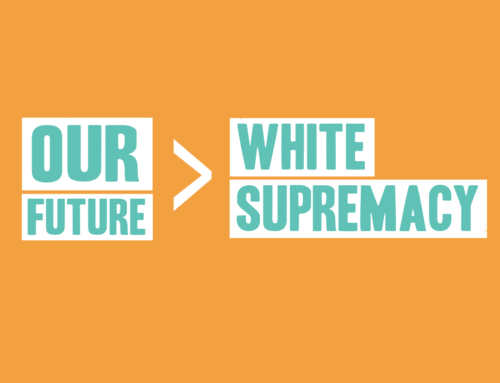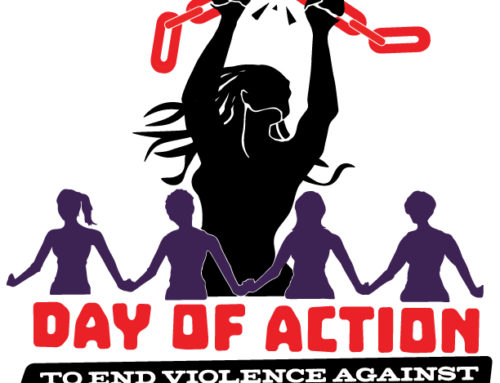
December 17, 2019: All work has dignity, and every human being has the right to decide what to do with their own body. Positive Women’s Network – USA (PWN) unequivocally supports sex workers and their right to bodily autonomy. Our advocacy is grounded in human rights and social justice, and we are committed to ending criminalization and violence. This means we support policies that affirm the right to control our labor, provide for access to non-discriminatory health care services, and protect safety for all people.
Today, on the International Day to End Violence Against Sex Workers, we join in solidarity with the sex work community in denouncing all violence–interpersonal and structural—against sex workers and in calling for policies that protect and expand bodily autonomy.
As such, we support:
- The SAFE Sex Worker Study Act, to be introduced today by Rep. Ro Khanna (D-CA) and Rep. Barbara Lee (D-CA). The bill is one of the first pieces of federal legislation to be crafted with the help of sex workers and sex workers’ rights advocates. It would study the effects of the Stop Enabling Sex Traffickers Act and the Fight Online Sex Trafficking Act (SESTA/FOSTA) and the risks to safety, economic security, and dignity that sex workers face every day.
- Full decriminalization of sex work, such as the Washington, D.C., bill that would decriminalize sex work. We do not support the “end demand” model (also called the “Nordic model”) that criminalizes patrons but not sex workers, and which many sex workers have said increases stigma without actually improving conditions. Sex work is labor and deserves the same legal protections as other forms of employment. Decriminalizing would help address the surveillance, policing, and incarceration of people in the sex trades, all of which increase vulnerability to violence, abuse and exploitation.
- Creating culturally competent, non-stigmatizing social programs that uphold the full economic, social and political empowerment of people in the sex trades.
And we oppose:
- Policies that use the possession of condoms as evidence of sex work. These policies make it impossible for sex workers to protect themselves and takes away their ability to make critical decisions about contraception.
PWN also urges coalitions working on intersectional social justice issues to meaningfully involve sex workers and sex worker-led organizations. Sex workers are among the most vulnerable in our society; advocates working on issues that disproportionately impact them must work in community with them and value their leadership. Coalitions also must understand the resource limitations sex worker organizations face and actively seek to support sex worker participation financially whenever possible.
To learn more about the International Day to End Violence Against Sex Workers and to read about and say the names of those killed this year, please visit SWOP’s December 17 website.
###







